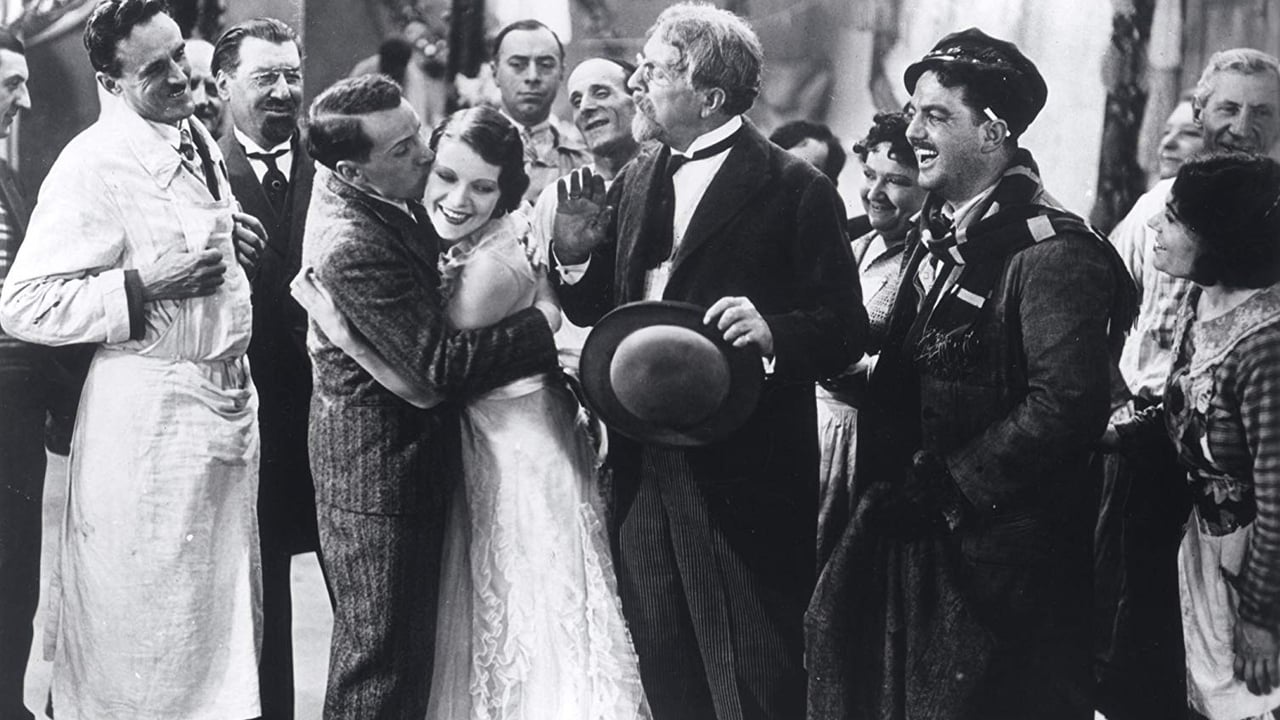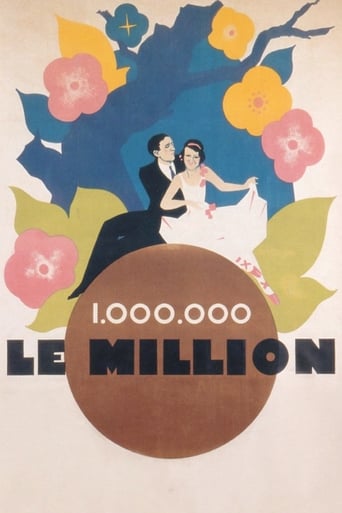Dynamixor
The performances transcend the film's tropes, grounding it in characters that feel more complete than this subgenre often produces.
SanEat
A film with more than the usual spoiler issues. Talking about it in any detail feels akin to handing you a gift-wrapped present and saying, "I hope you like it -- It's a thriller about a diabolical secret experiment."
AshUnow
This is a small, humorous movie in some ways, but it has a huge heart. What a nice experience.
BelSports
This is a coming of age storyline that you've seen in one form or another for decades. It takes a truly unique voice to make yet another one worth watching.
chaos-rampant
The story is enjoyable fluff, zipping past in a droll flurry of conniving, gaffe, hysterical chase, mistaken identity, public dishonesty, false appearances, and social hypocrisy around money. A snotty starving artist who owes everyone wins the lottery but his fateful jacket upstairs is missing and makes its round of Paris.Now for the musical touch. The jacket ends in the hands of an opera singer who thinks it authentic ('bohemian') enough for his stage costume—it's closing night for a bohemian opera. The singer is rich but gets no satisfaction out of his art, constantly bickers with his co-star, lecherously chases skirt backstage. Our man along with the girl that is secretly in love with him follow the jacket on stage, as curtains go up and the show begins.What follows is a magical moment where the fake bohemian couple provide the song that conciliates the two lovers hiding on the same stage behind a piece of scenery, a marvelous setup. In the dreamlike reality of the musical, the jacket is miraculously retrieved, miraculously snatched away in the next beat, and—lo— miraculously presented again in the finale. All because he realized the richness of love.And how about this as framework? A vast tracking shot opens the film, over a sleeping city to a rooftop where two neighbours peer from a window to wild celebration below. The two of them wonder why the ruckus, which is promptly followed by the dancers relating the story that is our film. I am in awe of how they achieved the shot, it looks like they had to build a few acres of cityscape inside the studio.
ilprofessore-1
The French director Rene Clair, who is often forgotten when the great pioneers of film technique are mentioned, made this innovative film in 1931 in the very early days of sound films. The delightful mix of silent-movie style slapstick, spoken and sung dialogue, opera parody and song, moving camera and inter-cutting obviously influenced Rodgers and Hart and Rouben Mamoulian who a year later attempted the same sort of musical, "Love Me Tonight," with Chevalier at the Paramount Studios in Hollywood. Clair's unique genius is in his ability to twist reality and create a fairy-tale world. In this film he sustains his particular brand of magic from the first model shots of the roofs of Paris to last scenes backstage at the opera. Yes, the story is very silly and highly improbable, but the charm of it, the Parisian charm, is undeniable. Much credit must be given to the cinematographer, the great Georges Périnal who later worked in England and photographed many of the great Alexander Korda films.
aw-pub
If one would see a René Clair film with the kind of distracted semi-attention which is the rule in TV watching - one might be better off doing something different.Watching "Le Million" with all attention focused upon what takes place before eyes and ears will reveal a wealth of delightful details which keep this musical comedy going from the beginning to the end with its explosion of joy.In the Danish newspaper Berlingske Tidende a journalist once wrote: "In my younger days I saw a film which made me feel like dancing all the way home from the cinema. This film is on TV tonight - see it!"
ndean
A wonderful early musical film from Rene Clair, as fun and witty as his silent "The Italian Straw Hat". Using sound in a expressive way and not just for dialogue and effects, Clair influenced early musicals in America (the opera scene from A Night at the Opera is strongly influenced by Le Million, for example). Should (but won't) be seen by all cinephiles, and the DVD from Criterion is exactly as good as you'd expect. There's not a ton of extras, but most DVD extras I've seen are useless fluff, and the Clair interview on disc is one I hadn't ever seen. Get it while it's still around.

